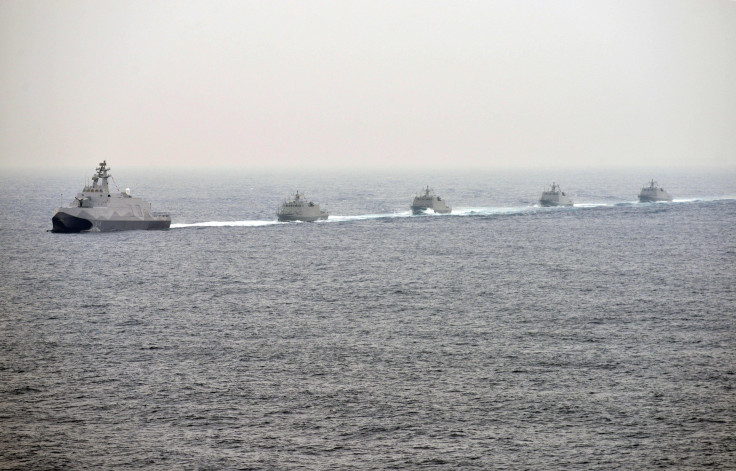South China Sea Controversy: Taiwan’s President Ma Ying-Jeou Asserts Claim Over Disputed Island During Visit

Taiwan’s President Ma Ying-jeou visited an island on the disputed South China Sea Thursday and emphasized the county’s sovereignty over the region, which has been witnessing increasing assertions from China. The visit was criticized by the U.S., which said the move could aggravate tensions in the region.
Ma was accompanied by three staff members and called for a peaceful co-existence and a joint development with other countries, while speaking at a national monument on Taiping Island, also known as Itu Aba, the Associated Press (AP) reported. The other countries claiming the region include China, Vietnam, Malaysia, the Philippines and Brunei. Taiping lies about 1,200 miles south of Taiwan and Beijing has asserted its claims over the region with man-made islands, and building ports, airstrips and other infrastructure.
Ma said that his country developed the infrastructure on Taiping Island by building a 10-bed hospital and a lighthouse, which gave it rights over the surrounding waters. Taiwan is also spending over $100 million to upgrade an airstrip on the island and to build a wharf that would allow docking of its 3,000-ton coast guard cutters, AP reported.
"All this evidence fully demonstrates that Taiping Island is able to sustain human habitation and an economic life of its own. Taiping Island is categorically not a rock, but an island," Ma said, according to AP.
Taiwan’s Ministry of Foreign Affairs also said that the visit was important for the country to protect its territorial rights and maritime interests in the region, Taiwan Today, a local news website reported.
“The Taiping outing is in keeping with the spirit of President Ma’s South China Sea Peace Initiative, which upholds the longstanding principles of safeguarding sovereignty, shelving disputes, pursuing peace and reciprocity and promoting joint exploration and development,” Foreign Affairs Minister David Y. L. Lin, said, according to Taiwan Today.
The Philippines, which also lays claim to islands in the South China Sea, expressed concern over the visit. Meanwhile, Mark Toner, the U.S. State Department spokesman, said according to AP, that Washington was disappointed with the visit.
"President Ma Ying-jeou has every right to make his position clear on the South China Sea. We just disagree with this particular action. We view it as, frankly, as raising tensions rather than what we want to see, which is de-escalation," Toner said, according to AP.
Bonnie Glaser, senior adviser for Asia at the Center for Strategic and International Studies, a think tank in Washington, said, according to AP: “President Ma... views advancing (Taiwan's) maritime interests as part of his legacy,” adding: "His visit to Taiping will further incite nationalistic fervor in the claimant countries and increase tensions."
China considers Taiwan as a breakaway territory that will eventually be reunited with the mainland and has even threatened to use force to achieve that. However, many Taiwanese residents and leaders are against a unification and want to establish complete independence.
© Copyright IBTimes 2025. All rights reserved.






















